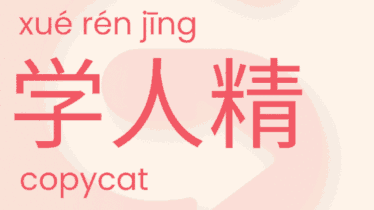How to Say “Nice to Meet You” in Mandarin Chinese
Learning how to politely greet someone you just met is an important social skill when learning a new language. In Mandarin Chinese, there are a few different ways to politely say “Nice to meet you” when being introduced to someone for the first time.
In this comprehensive guide, we will go over the most common Chinese greetings and phrases used when meeting someone new. We’ll cover the differences between formal and informal greetings, when to use each phrase, and how to properly pronounce them.
Why Learning Proper Chinese Greetings Matters
Greetings are essential in forming positive first impressions and building relationships in any culture. This is especially true when doing business or networking in China. Using the wrong greeting or improper language can portray unintended disrespect.
Knowing how to politely address people upon meeting shows you made an effort to understand Chinese manners and etiquette. This leaves a good impression with native speakers.
Formal Greetings For New Acquaintances
In formal situations, here are some appropriate Chinese greetings to use when meeting someone for the first time:
Wǒ hěn gāoxìng rènshi nín – 我很高兴认识你
This phrase directly translates to “I’m very happy to meet you.” It’s one of the most commonly used polite greetings when introduced to new people in formal settings.
Hěn gāoxìng rènshi nín – 很高兴认识您
This greeting has the same meaning, but uses the formal nín for “you” instead of the more casual nǐ. Use this version when meeting superiors, elders, clients or business partners for the first time.
Wǒ míngzì jiào… Hěn gāoxìng rènshi nín – 我名字叫。。。很高兴认识您
This introduces your own name when meeting someone. For example: “My name is Paul. Pleasure to meet you.” Insert your Chinese name in the sentence.
Casual Greetings For Friends & Peers
When meeting someone around your own age or in casual settings, these greetings are more natural:
**Hěn gāoxìng rènshi nǐ – **很高兴认识你
The informal version with nǐ is suitable when meeting classmates, coworkers and new friends in relaxed environments.
Nǐ hǎo! Wǒ jiào… 你好!我叫…
Say “Hello! My name is…” and state your name. This friendly greeting works well for introductions in casual situations.
Wǒ shì… Hěn gāoxìng rènshi nǐ 我是。。。很高兴认识你
“I am… Nice to meet you” is a warm, conversational way to say your name and that you’re pleased to meet someone.
Proper Pronunciation
Here are some pronunciation tips for greeting people politely in Chinese:
- Rènshi – The tone is a falling then rising second tone. Say the “r” sound gently.
- Gāoxìng – The first syllable “gao” is high pitched second tone. Say “xi” in a gently falling fourth tone.
- Qǐng – Use a falling then rising third tone. The “i” sounds like “ee” in “bee.”
- Nín – The polite “you” has a falling third tone and sounds similar to “neen.”
- Nǐ hǎo – A friendly, upward “nee how” greeting with second and third tones.
When NOT to Say “Nice to Meet You”
Sometimes it may sound awkward or unnatural to say “Nice to meet you” in Chinese. Here are some scenarios where it’s better to use a different greeting:
- When being introduced to someone’s friend or coworker in passing. Stick to a simple “Nǐ hǎo” instead.
- If you’ve already briefly met someone before. Just say “Zài jiàn” (goodbye) or “Huí jiàn” (see you again) next time.
- When you’ve already had email, phone or video call exchanges with someone. A simple “Nǐ hǎo” will suffice upon finally meeting them.
- Being introduced to a group. Use a general greeting like “nǐmen hǎo” (hello everyone) instead.
- Meeting someone very briefly, like a taxi driver or server. Better to just smile and use simpler greetings.
Alternative Greetings
Here are some other greetings that can be used along with or instead of “Nice to meet you” in Chinese:
Huānyíng – 欢迎 – Literally means “welcome.” A friendly greeting.
Mànmàn chī – 慢慢吃 – “Eat slowly” is used like “take it easy” or “nice and slow.”
Máfanle – 麻烦了 – Say this to politely express gratitude like “thank you for your trouble.”
Useful Phrases to Learn Next
Once you’ve made a good first impression, here are some other helpful Mandarin phrases and questions to learn next:
- Wǒ de zhōngwén shuō de bù tài hǎo – My Chinese is not very good.
- Nǐ cóng nǎlǐ lái? – Where are you from?
- Nǐ jiào shénme míngzì? – What is your name?
- Nǐ zuìjìn háishì hǎo ma? – How have you been recently?
- Zěnme le? – What’s up? (Informal)
- Nǐ zuò shénme gōngzuò? – What do you do for work?
Learning these conversational phrases can help continue a friendly dialogue after greeting someone in Chinese.
Common Responses You’ll Get
When you greet a native Mandarin speaker with “Nice to meet you”, here are some replies you’re likely to receive:
- Wǒ yě shì – Me too
- Wǒ yě hěn gāoxìng – I’m also very happy
- Nǐmen hǎo – Hello/Good to see you (plural)
- Míngtian jiàn – See you tomorrow
- Xièxiè – Thank you
- Bù kèqì – You’re welcome
- Nǐ huì shuō zhōngwén ma? – Do you speak Chinese?
- Huānyíng lái dào zhōngguó – Welcome to China
Being prepared for these responses can keep the conversation going smoothly after your initial Chinese greeting.
Conclusion
Learning proper Chinese greetings is key to making positive first impressions when meeting new people and establishing relationships. By mastering how to politely say “Nice to meet you”, you’ll be prepared to make a good impression in both formal and casual situations.
Focus on pronunciation, when to use formal vs casual phrases, and following up with additional conversational questions. With some practice, you’ll be greeting new acquaintances in fluent Mandarin in no time!
Don’t miss out on expanding your knowledge – visit our Chinese learning resource page!
Immerse yourself in an unforgettable learning experience! – Book a Trial Chinese Learning Class
Related reading: How long does it to take to learn mandarin chinese?



